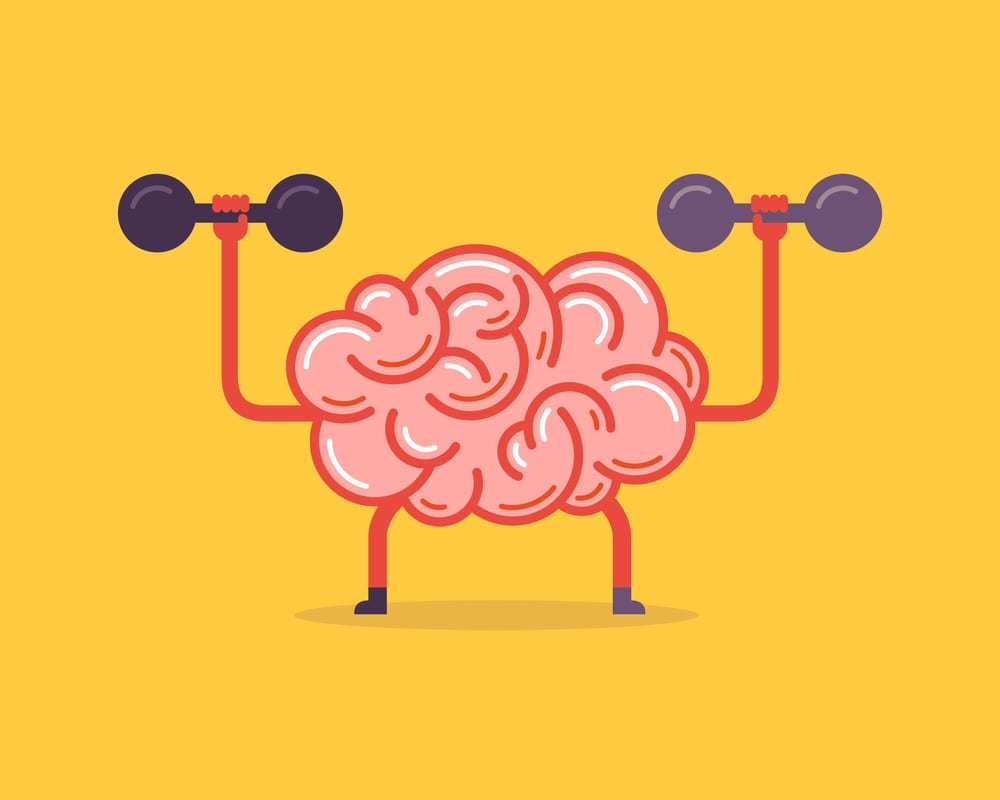After graduating from school, you might have cheerfully said goodbye to homework and tests, but we hope you haven’t used that as an excuse to let your brain go idle. The importance of physical fitness is well documented and much discussed, but brain exercises are often overlooked. While it’s true that many programs that claim to improve your brain’s performance are ineffectual, there are a few forms of cognitive brain training that have passed muster. Scroll down to learn about one of these programs, and consider how strengthening your brain might also benefit your hearing health.
Cognitive Brain Training
Unfortunately, cognitive brain training is often ineffective. Without a proper explanation of how brain training works and the right guidance over time from a trained professional, many people will not obtain the maximum results from cognitive brain training. As one study concluded, some of these programs “only make you better at the exercises themselves, and don’t carry those gains over to your real-world concentration, productivity, or mental acuity” (source). The brain training programs that are successful challenge the brain in such a way that it undergoes structural changes, a process known as neuroplasticity.
Scientists used to believe that the brain was static and unable to adapt, but now we know that this amazing organ can actually reorganize itself and alter the function of different sections. One game that prompts neuroplasticity focuses on speed-processing training.
Speed-Processing Training
Many companies claim that their cognitive brain training products can stave off dementia, Alzheimer’s, and other cognitive health issues, but these products vary greatly in technique and effectiveness. In a special edition of the magazine Time entitled “The Science of Alzheimer’s,” the article “A Faster Brain Turns Out to Be a Stronger Brain” explored a new study that examined the effect of cognitive brain training on cognitive decline: “In the most rigorous study to date, researchers have compared different types of cognitive training head to head and report that what’s known as speed-processing training can indeed lower rates of cognitive decline and dementia.” The study was led by neuroscientist Jerri Edwards at the University of South Florida and involved nearly 3,000 healthy older people, who were followed for 10 years after the completion of the study. It revealed that only those participants who were assigned speed-processing training showed a 33-percent reduction in the amount of dementia or cognitive impairment.
Amazingly, this training is available online through BrainHQ in an exercise called Double Decision – so anyone can try it in the comfort of their own home! It tests how quickly and accurately you see details, both straight ahead and in your peripheral vision. As you improve, the speed and difficulty of the game increases, which pushes your brain to work even harder.
If you’re exploring other options for cognitive brain training, Edwards recommends that you “seek out training backed by multiple peer-reviewed studies” (source).
Hearing Loss and the Brain
The relationship between the brain and hearing health is complex. Not only can problems with the brain cause hearing loss, but also hearing loss can lead to cognitive health issues. In addition, because the brain plays such a large role in the process of hearing, we can use cognitive brain training to help people who suffer from hearing loss and tinnitus.
An aging brain can cause hearing loss.
You might assume that hearing loss is always caused by changes in the ears, but in fact, sometimes an aging brain provokes hearing loss, as it changes the way the brain processes information. Researchers at the International Center for Hearing and Speech Research (ICHSR) have found patients with healthy inner ears that struggle to hear due to their brains (source). Why is this? As we grow older (often beginning in our 40s and 50s), our brain’s ability to provide proper feedback to the ear declines. It isn’t as agile at filtering out unnecessary sound information, which means it can easily become overwhelmed by background noise (source). In addition, most people struggle to hear high-frequency sounds as they age and may experience issues with feedback and timing.
Cognitive brain training may improve some hearing-related issues caused by aging brains. Dr. Henry Mahncke, the CEO of BrainHQ, states that science has shown that people who use plasticity-based brain training programs, “notice feeling sharper, quicker, and more able to notice the important details of everyday life – like what someone says in a noisy restaurant, or what’s happening at the edge of your peripheral vision, or what all seven digits of that phone number were” (source). So if you’ve found it more difficult to hear past background noise as you’ve gotten older, you may want to give speed-processing training a try.
Untreated hearing loss can lead to structural changes in the brain.
Did you know that you could worsen your hearing loss by neglecting to contact an audiologist? Hearing loss changes the structure of the brain when left untreated. Some regions of the brain, including those devoted to speech and sound, will shrink significantly if a person with hearing loss does not use hearing aids. When no longer in use, those parts of the brain will weaken and atrophy, sometimes causing long-term damage to the structure of the brain.
Midlife hearing loss is the greatest risk factor for dementia.
Although experts aren’t exactly sure why, midlife hearing loss is actually the single greatest risk factor for dementia (source). This may be due to social isolation, as many people feel compelled to withdraw from society when they struggle with their hearing, and social isolation is another risk factor for dementia. In addition, because the brain must work very hard to decode sounds when a person struggles with hearing loss, it may not always be able to remember what it has heard. Instead of handling both tasks (listening and remembering), it focuses on listening and yields to memory loss. Finally, the structural changes in the brain that we noted above could also provoke cognitive health issues.
For more information about the relationship between hearing health and cognitive decline, check out our page Hearing Loss and Dementia.
Cognitive brain training can help people who suffer from hearing loss or tinnitus.
At Sound Relief Hearing Center, we discuss brain re-wiring and neuroplasticity with our patients every day, primarily through our work with Tinnitus Retraining Therapy (TRT), which is the main method we use to help people who suffer from tinnitus. Developed by Dr. Pawel Jastreboff, Ph.D., Sc.D., this therapy is based on the neurophysiological model of tinnitus, which illustrates the importance that the brain and automatic nervous system play in generating tinnitus (source). One of the main principles of TRT is that the brain can easily be shaped or molded, which allows it to become accustomed to any neutral signal once negative associations with that signal (i.e., tinnitus) are neutralized (source). Our very own Dr. Julie Prutsman studied under Dr. Jastreboff in 2002 and has used the TRT program to help numerous patients reduce the impact of tinnitus on their lives.
In addition, there are two auditory-specific brain training exercises that we recommend to our patients. The first program is called LACE, which stands for Listening and Communication Enhancement, and it is offered by Neurotone. It is a six-week course that is offered online to help retrain the brain to be a good listener with the assistance of amplification (i.e. hearing aids). LACE has been proven to help increase a patient’s ability to separate speech from complex listening situations.
ReadMyQuips, produced by Sense Synergy, is another fun auditory-brain training exercise. Like LACE, its goal is to help the brain learn how to use visual and auditory clues to maximize speech understanding in noisy places. You simply listen to the wise or witty saying and then type in what you heard. As you strengthen this skill, the program will increase the noise level, forcing your brain to work harder to understand the quip.
If you’re interested in LACE or ReadMyQuips, take advantage of their free-trial offers.
_____
Whether you’ve recently noticed a change in your hearing or you need to schedule your annual hearing exam, we encourage you to talk to an audiologist about your hearing health. If you live in Colorado or Arizona, contact Sound Relief Hearing Center for help. We are independently owned, so we always have the patient’s best interest at heart. Plus, our state-of-the-art technology ensures that our patients receive the best treatment available. To learn more about us, please browse our website, visit our YouTube channel, or give us a call at 720-344-7600. You can also schedule an appointment online to meet with one of our audiologists. We look forward to hearing from you!

